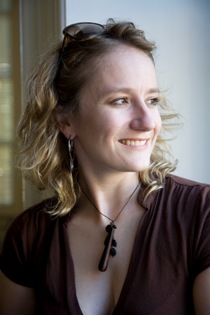At least one public library isn’t letting kids under 13 open an account online, and it’s citing the Children’s Online Privacy Protection Act (COPPA) as the reason—even though the law doesn’t prohibit children from doing that.
 That’s what danah boyd (pictured) discovered when she recently visited the Boston Public Library’s (BPL) website to open an online account. The library allows children under 13 to open accounts. But it must be done in person. The social media researcher wrote about the experience on her blog, apophenia. Surprised, boyd contacted the library, asking why it had restricted kids’ access.
That’s what danah boyd (pictured) discovered when she recently visited the Boston Public Library’s (BPL) website to open an online account. The library allows children under 13 to open accounts. But it must be done in person. The social media researcher wrote about the experience on her blog, apophenia. Surprised, boyd contacted the library, asking why it had restricted kids’ access.
BPL responded that although it didn’t want to restrict children’s access, it wanted to stay “on the safest side of COPPA,” wrote boyd, which made “her heart sink.”
“Ideally, children can get to a physical library,” emailed boyd, who’s a senior researcher at Microsoft Research, as well as an assistant professor of media, culture, and communication at New York University, and a visiting researcher at Harvard Law School. “But in many households that’s not an option. Children’s inability to get access to public spaces is precisely part of what drives them to engage with the Internet. The Internet had become one of the few accessible public places for children. It’s fantastic that libraries are providing content online, but it’s dreadful that they restrict access to children under the age of 13 under the guise of COPPA.”
A law enacted by the Federal Trade Commission (FTC), COPPA, which went into effect in April 2000, is meant to protect data gathering about children under the age of 13 by commercial websites and services. Libraries, by their noncommercial nature, are implicitly exempt.
Yet the American Library Association (ALA) believes its members should be knowledgeable about COPPA, so they can guide children and parents as they use online resources in their branches. But restricting content? No way.
“Librarians need to be aware of the law so they can talk with children and adults and help them navigate,” says Deborah Caldwell-Stone, deputy director of ALA’s Office for Intellectual Freedom. “We’ve never told them to use it as a basis of content. It should not be used in this way.”
COPPA, however, does apply to private enterprises. And the FTC has flexed its muscles to remind app makers, in particular, that they’re held accountable to follow the law. In September 2011, the FTC took legal action against mobile app developer W3, along with issuing a new report, “Mobile Apps for Kids: Current Privacy Disclosures Are Disappointing.” The document warned that apps makers must make it easier for parents to understand what data is being collected about their children, and that the FTC will be looking at the kind of data that’s being collected to spot potential COPPA violations.
Although public libraries and librarians aren’t required to restrict access to websites or apps on devices or computers in their branches, many try to steer their young patrons to the best resources available. And as Anne Collier co-director of ConnectSafely.org—a nonprofit organization that’s interested in social media—notes, in order to point out a good resource, you have to know a lot about them.
“What we’ve always promoted is that parents and children should be talking about these things,” says Caldwell-Stone. “That said, libraries do work with kids to guide them and help them understand what’s appropriate or talk to their parents about that.”

